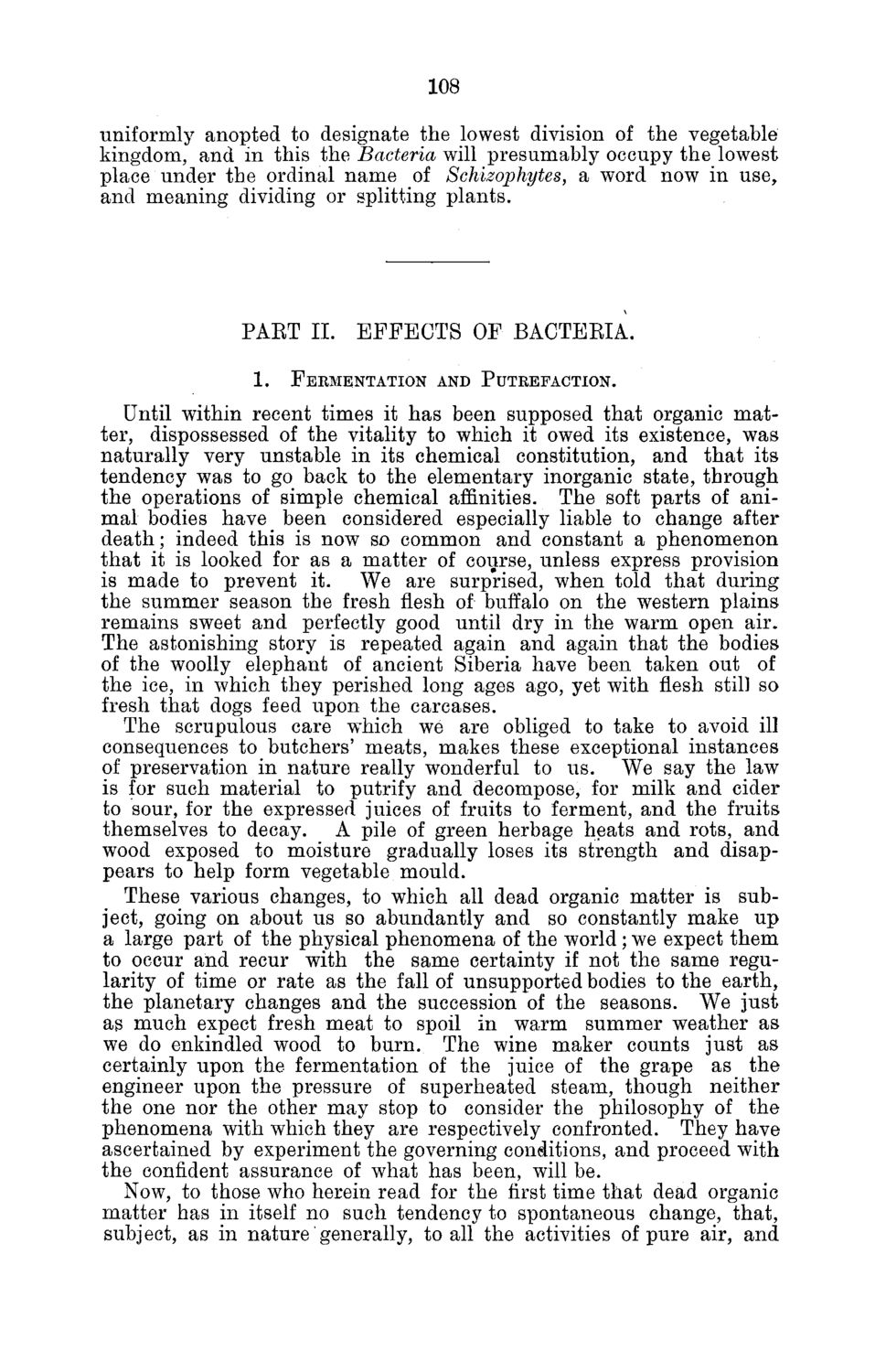| |
| |
Caption: Board of Trustees Minutes - 1882
This is a reduced-resolution page image for fast online browsing.

EXTRACTED TEXT FROM PAGE:
108 uniformly anopted to designate the lowest division of the vegetable kingdom, and in this the Bacteria will presumably occupy the lowest place under the ordinal name of Schizophytes, a word now in use, and meaning dividing or splitting plants. PAET II. 1. EFFECTS OF BACTEEIA. FERMENTATION AND PUTREFACTION. Until within recent times it has been supposed that organic matter, dispossessed of the vitality to which it owed its existence, was naturally very unstable in its chemical constitution, and that its tendency was to go back to the elementary inorganic state, through the operations of simple chemical affinities. The soft parts of animal bodies have been considered especially liable to change after death; indeed this is now so common and constant a phenomenon that it is looked for as a matter of course, unless express provision is made to prevent it. We are surprised, when told that during the summer season the fresh flesh of buffalo on the western plains remains sweet and perfectly good until dry in the warm open air. The astonishing story is repeated again and again that the bodies of the woolly elephant of ancient Siberia have been taken out of the ice, in which they perished long ages ago, yet with flesh still so fresh that dogs feed upon the carcases. The scrupulous care which we are obliged to take to avoid ill consequences to butchers' meats, makes these exceptional instances of preservation in nature really wonderful to us. We say the law is for such material to putrify and decompose, for milk and cider to sour, for the expressed juices of fruits to ferment, and the fruits themselves to decay. A pile of green herbage heats and rots, and wood exposed to moisture gradually loses its strength and disappears to help form vegetable mould. These various changes, to which all dead organic matter is subject, going on about us so abundantly and so constantly make up a large part of the physical phenomena of the world; we expect them to occur and recur with the same certainty if not the same regularity of time or rate as the fall of unsupported bodies to the earth, the planetary changes and the succession of the seasons. We just as much expect fresh meat to spoil in warm summer weather as we do enkindled wood to burn. The wine maker counts just as certainly upon the fermentation of the juice of the grape as the engineer upon the pressure of superheated steam, though neither the one nor the other may stop to consider the philosophy of the phenomena with which they are respectively confronted. They have ascertained by experiment the governing conditions, and proceed with the confident assurance of what has been, will be. Now, to those who herein read for the first time that dead organic matter has in itself no such tendency to spontaneous change, that, subject, as in nature generally, to all the activities of pure air, and
| |